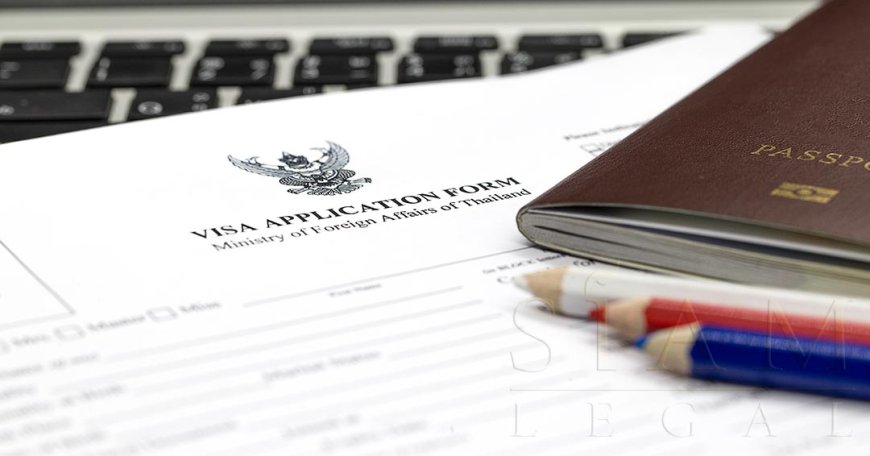Starting a business in Thailand can be a rewarding opportunity for foreigners. The Thai government welcomes foreign investment, but there are specific processes and legal requirements to follow. In this guide, we explain how to register a business in Thailand as a foreigner, covering the steps, documents, and legal structures you need to know for a smooth business setup.
Step 1: Choose the Right Business Structure
H3: Popular Business Types for Foreigners in Thailand
Before registering your business, it’s essential to choose the right legal structure. The most common types of business structures for foreigners in Thailand include:
- Thai Limited Company: The most popular option. It requires at least three shareholders, and foreign ownership is usually limited to 49%, unless special permissions are obtained.
- Board of Investment (BOI) Company: Offers various incentives, including 100% foreign ownership and tax exemptions, but you must apply and qualify for BOI approval.
- Foreign Business License (FBL): If you want more than 49% foreign ownership without BOI support, you’ll need an FBL, which is harder to obtain.
- Representative Office: A non-profit office setup for conducting research or liaising with local firms without engaging in sales.
Each business structure has different rules regarding ownership, taxation, and control, so it’s important to choose the one that best suits your needs.
Step 2: Meet the Legal Requirements
Capital and Ownership Restrictions for Foreigners
Foreigners looking to register a business in Thailand must comply with certain legal requirements:
- Minimum Registered Capital: For a foreign-owned business, the minimum registered capital is usually THB 2 million. For businesses with a work permit, it is THB 3 million per work permit.
- Foreign Ownership Limits: In most industries, foreign ownership is capped at 49%. However, under the BOI or with an FBL, 100% foreign ownership is allowed in certain industries.
- Thai Shareholders: A Thai limited company requires at least three shareholders, and foreign investors cannot own more than 49% unless they apply for an exception.
Meeting these requirements is crucial to the successful registration of your business.
Step 3: Register Your Business Name
How to Choose and Register a Business Name
The next step is to register your business name with the Department of Business Development (DBD). Here’s how to do it:
- Check Name Availability: Ensure that the chosen name isn’t already taken or too similar to an existing company.
- Submit Name Reservation Form: Submit a name reservation form to the DBD. Approval usually takes a few days.
Once the business name is approved, you can proceed with the rest of the registration process.
Step 4: Prepare and Submit the Required Documents
Key Documents for Business Registration in Thailand
To officially register your business, you’ll need to prepare and submit the following documents:
- Memorandum of Association: This document outlines the company’s name, location, objectives, and registered capital. It also lists the shareholders and their shares.
- Articles of Association: The company’s internal regulations, including management structure and voting procedures.
- List of Shareholders: A record of all shareholders and their respective shares.
- Director’s Form: Information about the company’s directors, including their authority and responsibilities.
- Registration Fee: The fee depends on the company’s registered capital but is generally between THB 5,000 and THB 20,000.
After submission, the company will be registered with the Ministry of Commerce.
Step 5: Register for VAT and Obtain a Tax ID
Why Registering for VAT is Important
If your company’s annual revenue exceeds THB 1.8 million, you’ll need to register for Value Added Tax (VAT). Here’s what you need to do:
- Apply for a Tax ID: Once your company is registered, you must apply for a Taxpayer Identification Number from the Revenue Department within 60 days.
- Register for VAT: If your revenue exceeds the threshold, you’ll need to register for VAT. This allows you to charge VAT on goods and services and claim back VAT on business expenses.
Proper tax registration ensures compliance with Thai tax laws.
Step 6: Obtain Necessary Licenses and Permits
Industry-Specific Permits You May Need
Depending on your business activity, you may need to apply for specific licenses or permits. Some of the most common ones include:
- Food and Beverage Licenses: Required for restaurants and bars.
- Tourism License: Required for travel agencies and tour operators.
- Import/Export Licenses: Needed if your business deals with international trade.
Make sure to research the necessary permits for your industry to avoid legal complications.
Step 7: Apply for Work Permits and Visas
How Foreign Business Owners Can Legally Work in Thailand
If you plan to work in Thailand as a foreign business owner, you’ll need a work permit and the appropriate visa. The key steps include:
- Non-Immigrant B Visa: Apply for this visa at a Thai embassy or consulate before entering Thailand.
- Work Permit Application: Submit your application after your business is registered. You’ll need documents such as your passport, company registration, and proof of qualifications.
- Visa Extension: Once you have your work permit, you can extend your visa for a longer stay.
Failure to obtain the right visas and work permits can result in fines and legal issues, so it’s essential to get this right.
Conclusion: Start Your Business in Thailand with Confidence
Registering a business in Thailand as a foreigner involves several important steps, from choosing the right business structure to applying for work permits. By following this guide and ensuring that you meet all legal requirements, you can successfully establish your company and begin operating in this thriving market.
Key Takeaways
- Choose the right business structure, whether it’s a limited company, BOI company, or representative office.
- Ensure you meet capital and ownership restrictions for foreigners.
- Prepare and submit the necessary documents for registration with the Department of Business Development.
- Register for VAT and obtain a tax ID to stay compliant with Thai tax laws.
- Apply for the appropriate visas and work permits to legally work in Thailand.
By understanding these steps, you’ll be well on your way to successfully registering and running a business in Thailand in 2024.









